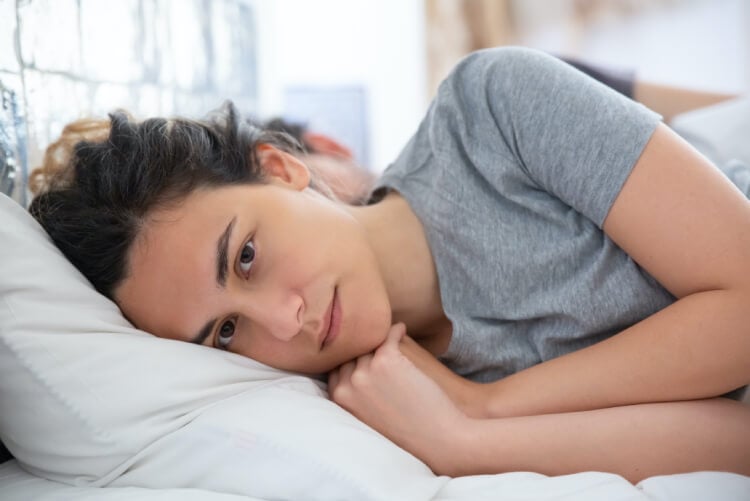Anxiety Therapy
Anxiety therapy can help you to understand the root cause of your anxiety difficulties and process them to help with current symptoms. We use an integrative and holistic approach to help people with anxiety.
We all have anxious feelings from time to time from our experiense of life. If you are feeling anxious, fearful, tense and worried most of the time when there is no obvious present trigger, it could mean that you are suffering from an anxiety disorder.
According to the Mental Health UK 1 in 10 people will be experiencing an anxiety disorder at any one time. That is an average of 8 million persons in the UK population. Less than 50% of people experiencing a general anxiety disorder access treatment.

What Is Anxiety?
Anxiety is what we might feel when we experience the fear emotion. It might be a feeling of impending doom, feeling worried, tense or panicky. It is caused by symapthetic arousal of the autonomic nervous system. This is more commonly known as fight or flight - stress response. When this response is triggered under genuinely stressful circumstances it is normal. It is designed to protect us and is a normal part of functioning. Perhaps you can recall being a small child having to take your first exam and feeling anxious?
When Does Anxiety Become A Mental Health Problem?
Anxiety becomes a mental health problem when anxiety symptoms are experienced:
- even when there is no specific current threat
- when anxiety symptoms are particularly strong and last for long periods of time.
- when symptoms experienced are out of proportion with the current situation
- when you experience symptoms regularly and have panic attacks
- when your everyday functioning is not possible and you use avoidance to manage symptoms.


Anxiety symptoms
Anxiety symptoms might manifest physically and or mentally. Physical symptoms might include: panic attacks, sleep difficulties, hyperarousal, hypervigilance, irritability, fatigue, headaches, nail biting, or a sense of dread in the pit of your stomach. Psychological symptoms might include intrusive thoughts, avoidance of triggering situations, obsessive thinking or worrying for a lot of the time.
What Causes An Anxiety Disorder & Who Is At Risk?
Anxiety disorders can be caused by a wide variety of influences. Examples might include: trauma, abuse, bullying, addiction, attachment difficulties, stressful life circumstances for exampe a long term health condition, societal stresses, for example inability to pay bills, change in circumstances or a life triggering event: for example a big T trauma. Younger people are at a higher risk of experiencing anxiety than older people and women are more likely to experience anxiety than men.


Psychotherapist
Matthew Alderton - MA, BSC, Dip, Dip Psych. I trained at The Centre for Counselling and Psychotherapy Education in London. I am also an EMDR practitioner.
EMDR is the leading evidence based treatment for PTSD. Anxiety is closely related to trauma symtoms making EMDR an important tool to help with anxiety. I also use psychotherapy and body psychotherapy to help with anxiety and anxiety related difficulties.
I am approachable and down to earth helping you to feel safe and relaxed in talking through your anxiety related symptoms.
Anxiety Therapy Approaches
Anxiety Therapy Benefits
Present
If you are suffering from anxiety symptoms you are probably not spending much time in the present moment. A somatic approach can help restore balance and get you to live back in the present.
Connect
When we are worrying less we are able to connect with ourselves. When we connect with ourselves we worry less.
Symptom cessation
Anxiety therapy can help you to manage anxiety symptoms as well as reduce them. Feeling stressed or anxious is addictive but so is feeling, relaxed, happy and calm.
Happiness
As you move back into the present you will be able to get on with your life and bring happiness back into it.

Our Client's Experience Of Anxiety Therapy
Anxiety Therapy Online
See our online therapy and what it entails guide.




